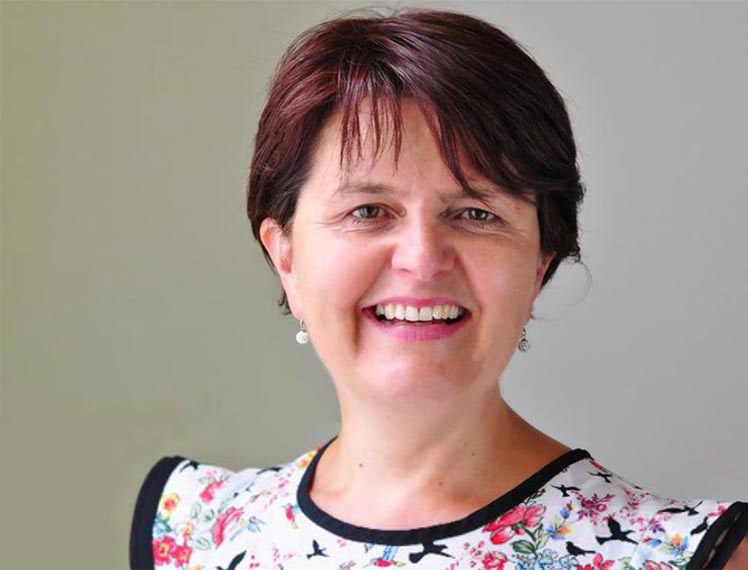T Level Transition Programme: Ensuring students are T Level ready

Transitioning to Level 3 #TLevels
T levels are exciting new Level 3 study programmes for 16 to 18-year-olds. 25 T Levels in sectors as varied as accountancy to media, broadcast and production and human resources to healthcare science will be introduced over four years.
The first to be introduced are Design, Surveying and Planning for the construction industry, Education and Childcare, and Digital Production, Design and Development from September 2020.
Each T Level starts with a broad knowledge-based core which will cover elements of what the sector entails, health and safety and legal requirements for example.
Students will then move into a specialism with a substantial industry placement.
Transition Year – Starting a T Level after 16
Not all young people, however, will be ready to embark upon a T Level at 16. The 2016 Report of the Independent Panel on Technical Education, chaired by Lord Sainsbury, recommended a ‘transition year’ to ensure that as many students as possible can complete a T Level by 19.
Bearing in mind that, according to AoC data, just over 20% of the college cohort are currently on Level 2 study programmes and that 48% of current level 3 students start at 17 having spent a year at Level 2, the T Level Transition Programme has the potential to impact on a significant number of young people, especially in colleges. The overall aim is to offer a spring board to higher level study and ultimately better employment opportunities.
T Level Transition Programme – Ensuring students are T Level ‘ready’
So, what does a programme to deliver ‘readiness’ look like?
AoC is working with the Department for Education (DfE) and a number of T Level 2020 providers to explore current and innovative practice to ensure students are T Level ‘ready’.
The vision for the national T Level Transition Programme Framework for Delivery 2020/21 published by DfE in October is to offer providers the flexibility to tailor their own transition programmes. This will ensure their students have the best opportunity to develop the academic and technical skills, knowledge and behaviours required to progress to a T Level, and to successfully complete it.
The framework includes:
- Thorough initial assessment
- English and maths
- Technical skills
- Work related learning
- Personal and social development opportunities and information
- Advice and guidance
These principles of course also underpin current study programmes.
The 2020 providers are exploring how best to shape the programme to dovetail into T Levels:
- What are the key ingredients to support successful progression?
- For example, if students plan to go onto a T Level do they need to achieve a substantial technical qualification at Level 2?
- Should self-confidence, work place experience and English and maths for life and employment play a more central part?
AoC is excited to have the opportunity to work with colleges and other providers in the planning and development stage. Currently the focus is on supporting students to progress to the first three T Levels.
This phase of the project will help inform and shape not only Transition Programmes for 2020 providers, but it will also establish good practice that can be adopted by 2021 providers and subsequent waves for these and the other 22 T Levels.
Opportunities for Greater Success – Supporting More 17 and 18 year olds to T Levels
In terms of ensuring a pipeline for T Levels and enabling even more young people to access Level 3 study the Transition Programme is crucial.
However, there are some potential barriers to overcome:
- Teaching Hours – T Levels have been allocated additional funding and at an average of 1,800 hours over two years they are 50% larger than current study programmes. The Transition Programme is a 600-hour study programme. It seems slightly odd that students who are further away from successful progression have fewer hours to make up the skills deficit they bring from pre-16 education.
- Functional Skills – English and maths are key to progression, but unlike T Levels, which offer the opportunity to work towards either GCSE or Functional Skills in these crucial subjects, the Transition Programme is subject to the grade 3 condition of funding. This means Transition Programme students, who are more than likely to have grade 3 English and maths on entry, will have to retake GCSEs which as academic qualifications may not be the best option for their intended progression.
- Widening Participation – Young people change their minds. Limiting transition to T Level progression only may mean that some students lose out. Students who want to progress to an apprenticeship for example, based on the same standards as T Levels, may well benefit from the Transition Programme offer.
Greater funding to support more teaching hours and a richer experience to nurture social capital, flexibility in the English and maths qualifications to be undertaken and enabling a wider range of students at this level to benefit from a tailored study programme would no doubt support even more students to progress onto a T Level or other Level 3 study.
Catherine Sezen, 14-19 & Curriculum Senior Policy Manager, the Association of Colleges (AoC)
No 16-18 Year Old Left BehindThe Spring Budget in March and Spending Review in the summer will be pivotal moments to see if the government will prioritise funding for the education and training of 16-18 year olds compared to other phases of the English system. These will be against a background of reported 5% cuts in departmental spending and the apprenticeship budget facing overspend. The recent falls in the number of 16-18 year olds starting apprenticeships will also cause concern of a rise in the young people not in education, employment or training (NEET). In this #No1618LeftBehind mini-series, leading authorities from across the education sector offer policies and measures to help the new Government level-up education and training opportunities for all 16-18 year olds in England: No 16-18 Year Old Left Behind – wherever they live. The authors are:
|











Responses